
Nutrition for a Healthy Heart
Heart and blood vessels diseases are the leading cause of death. According to recent surveys, the number of deaths caused by cardiovascular diseases can be reduced by 50% only if patients introduce simple changes in lifestyle, especially in the diet, and implement regular physical exercising.Saturated Fat and Cholesterol
List of changes in diet includes reduction of saturated fat and cholesterol intake. High triglycerides and cholesterol level in blood lead to formation of clots that clog arteries, which can result in arteriosclerosis, and even heart attack and stroke. Considering above mentioned there are some recommendations about daily fat intake. Calories entered by fat should not exceed 20 to a maximum 30% of total calories intake. Calories from saturated fats should not exceed 10% of total calories intake. Daily intake of cholesterol shouldn't be higher than 300 mg.Salt
Although there are controversies associated with increased salt intake and the risk of hypertension, most experts point that controlling and reducing salt intake might be a good preventive for many who suffer from high blood pressure.For normal body functioning normally, 0.5 to 1 gram of salt is required. American Heart Association experts' recommendation is that the upper limit of daily salt intake should be 2.4 grams.
Dietary Fibers
Most dietary fibers pass through the digestive tract undigested and unchanged. While passing through the digestive tract, food fibers affect the way of digesting or absorbing certain ingredients from food.Sources of dietary fiber are oats, oatmeal, beans, peas, rice, barley, citrus fruits, strawberries, apples, plums, bakery products made of whole grains, rye, cabbage, carrots, kale, broccoli,and so on.
Fish and Fish Oil
While saturated fats increase the risk of illness and death caused by cardiovascular disease, essential fatty acids, which are largely present in fish oil, positively effect on cardiovascular health, preventing the heart and blood vessels diseases. Essential fatty acids can help in: Reducing the triglycerides level in the blood Reducing the risk of blood clotting - the essential fatty acids act as natural anticoagulants in a way that impairs the ability of platelets agglutination. Lowering blood pressure - nutritionists and dietitians recommend eating fish at least two times a week. In addition to fish, a good source of essential fatty acids may be nuts (almonds) and seeds (flax seed).Soy
Isoflavones (phytoestrogens) contained in soy effect on the body in a similar way as estrogen. According to some studies, the daily intake of 25-80 grams of soy proteins, may reduce the level of total cholesterol, LDL cholesterol and triglycerides by 8%. For now, it is not entirely clear how soy causes the improvement of cholesterol profile in blood.Garlic
Garlic protects the heart and blood vessels by reducing total and LDL cholesterol level, lowering blood pressure, preventing the clots creation and acting as an antioxidant.Red Wine
Numerous studies have shown that moderate consumption of red wine reduces the risk of heart attack in middle-aged people by 30-50%. Antioxidants from wine increase HDL cholesterol level and prevent clots forming.Antioxidants
Antioxidants slow the oxidation process - chemical process that allows cells in the arteries to better absorb fatty acids and LDL cholesterol. This can cause the creation of plaque deposits and clogging the arteries - atherosclerosis. Antioxidants, which protect heart against disease, include vitamin C, E and carotenoids.Good sources of vitamin C are fruits and vegetables. Wheat germ nuts, seeds, vegetable oil, egg yolk and leafy green vegetables are good sources of vitamin E. Carotenoids are present in colored fruits and vegetables.



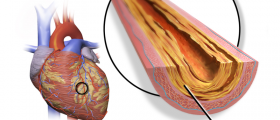


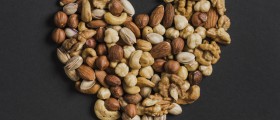


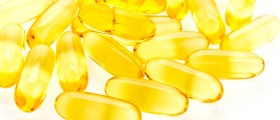

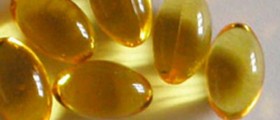


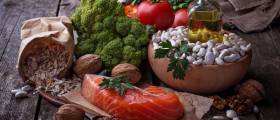

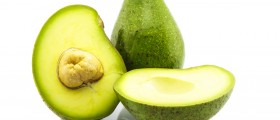
Your thoughts on this
Loading...